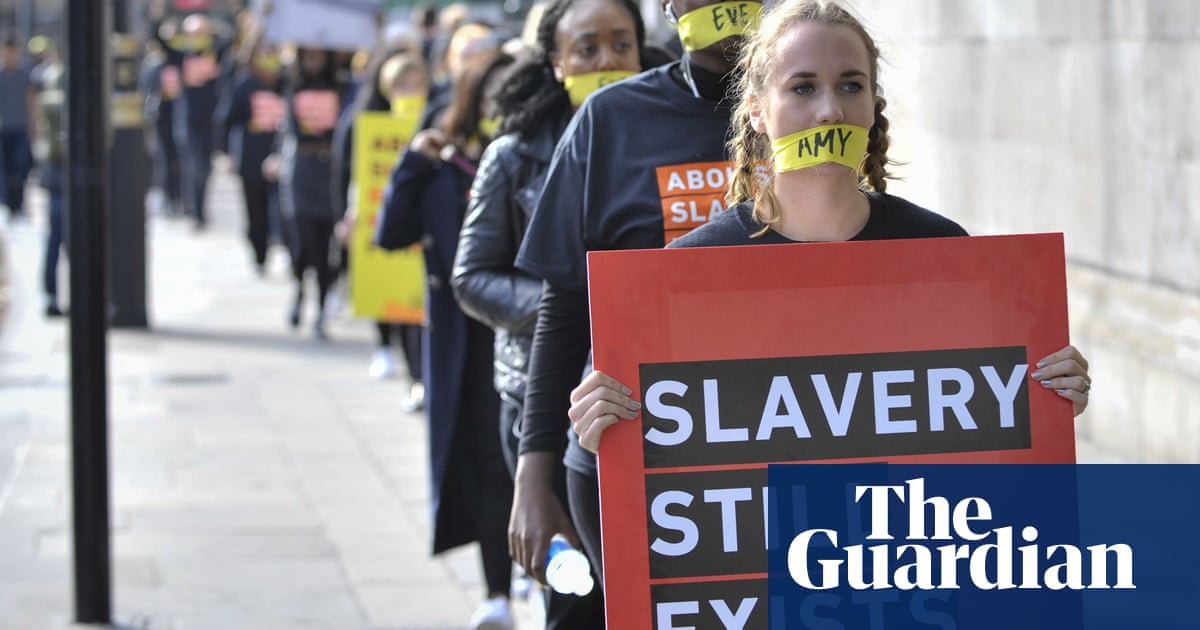
Campaigners and MPs have said anti-slavery declarations made mandatory by Theresa May risk becoming “a pointless box-ticking exercise” after it emerged that ministers took assurances from one previously slavery-linked company on trust.
Ministers gave IGT, a US gaming corporation that is the technology partner to the national lottery operator, Camelot, a clean bill of health even though the company previously reported significant potential slavery risks in its supply chain and had not said whether these had been eliminated.
The Department for Culture, Media and Sport (DCMS) said it was not responsible for scrutinising companies’ anti-slavery claims.
Under the 2015 Modern Slavery Act, helmed by May when she was home secretary, larger companies that operate in the UK are obliged to publish an annual statement connected to modern slavery.
Anti-slavery groups have said that while this has to be approved by the board of directors, the law does not oblige them to set out what exposure they have to slavery or how they are trying to reduce this.
In its 2017 statement, IGT went further than the statutory obligations, saying an analysis of its suppliers found 9% had a high risk of exposure to modern slavery and 18% a medium exposure risk, likely to be a factor of the metals used in gaming technology, the mining of which are sometimes linked to forced or child labour.
Subsequent annual reports cited efforts to tackle the issue, including more scrutiny of suppliers and a hotline to report concerns, but gave no details about how or whether this had been successful in reducing the exposure.
The most recent report detailed more anti-slavery work with suppliers, concluding that the company had not uncovered anything “that might suggest an increase in the likelihood or severity of modern slavery risks”.
However, when the Conservative MP Tim Loughton asked the DCMS for its assessment of IGT’s exposure to modern slavery, the junior minister Stuart Andrew replied that the company had stated it “did not have any convictions, breaches or risks in relation to modern slavery”.
A spokesperson for IGT said the company had “improved our practices aimed at reducing modern slavery risk in our supply chain since 2017”, continually monitored its supply chain to this end and was committed to reducing any potential connections to slavery.
Asked if IGT had carried out any post-2017 audits of its exposure, or whether it agreed with the DCMS assessment that it now had no risks connected to slavery, the company did not respond.
Sian Lea, the human rights manager at Anti-Slavery International, said the lack of compulsion in the 2015 act for companies to tackle slavery exposure in supply chains was “hugely problematic”.
She said: “The UK must keep up with the stronger laws around the world. We urgently need laws that hold companies accountable for their failure to prevent human rights and environmental harm and that stop goods made with forced labour from being on the UK market.”
Pauline Latham, the Conservative MP for Mid Derbyshire, who is a member of the Commons international development committee, said: “There’s no point having these anti-slavery declarations if it just becomes a pointless box-ticking exercise. It’s unfathomable that a company like IGT can say that around a quarter of its supply chain is at risk one year, then all of a sudden everything seems to be fine and ministers can say from the dispatch box that there’s zero risk.”
DCMS gave no on-record response but said government departments were not responsible for assessing IGT’s statements on anti-slavery.












